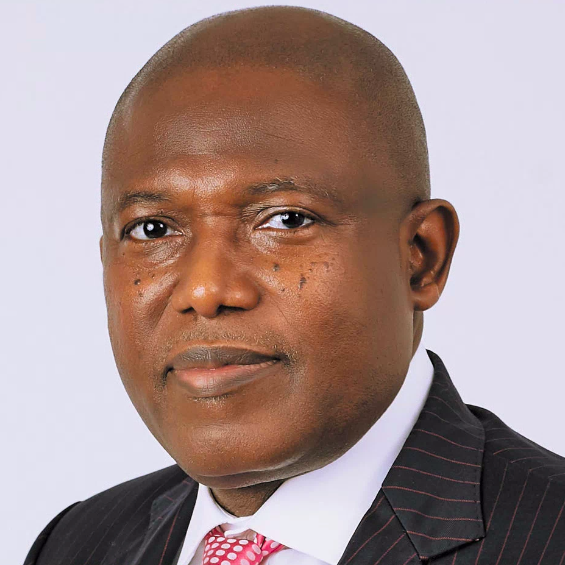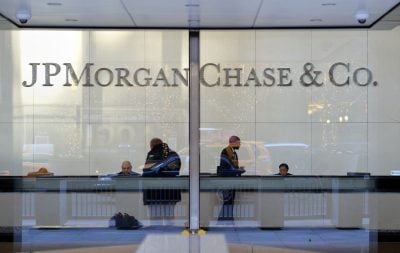Nigeria’s Bank of Industry (BOI) took the award for SME Bank of the Year for 2020 at the prestigious African Banker Awards ceremony in late August. Micro, small and medium enterprises (MSMEs) constitute the heart of any economy and are the major creators of jobs as countries work to restart their systems after Covid-19 lockdowns.
BOI is Nigeria’s development finance institution (DFI). Its mandate is to support industrialisation in Nigeria with a special focus on SMEs. In the past five years, the bank has disbursed about $3bn to over 2m enterprises. African Banker editor Anver Versi spoke to its managing director, Olukayode Pitan, to find out more about its business model.
You are in charge of an institution that has a development agenda, and yet is run like a private sector bank expected to turn a profit for its shareholders. How do you manage this?
Indeed, as a DFI, BOI does have a developmental mandate. Our primary shareholders are the Federal Ministry of Finance (FMF) and the Central Bank of Nigeria (CBN).
We operate as a private sector institution as we are a limited liability company with strong corporate governance structures in place. Our mandate is primarily developmental impact as opposed to profitability. The fact, however is that for us to continue to succeed with the mandate, we must remain financially sustainable and self-sufficient.
For example, the bank’s licence does not allow for the collection of customer deposits, thus BOI has to look for innovative ways to raise funds. Over the last three years, we have been able to raise up to $2.7bn from the international capital market and partnerships. We’ve implemented a strong risk management framework that allows us to keep our non-performing ratio within the regulatory limit.
How has Covid-19 affected your plans for 2020?
It is an undeniable fact that the Covid-19 pandemic has affected business operations for all organisations across the globe. We entered 2020 with huge expectations to significantly increase our support for MSMEs in Nigeria. The onset of the pandemic and its effects has only increased our resolve to support enterprises to stimulate growth and reflate the economy.
To this end, we have implemented measures (such as reducing interest rates as well as extending moratorium period and loan tenor) to ensure that we continuously support Nigerian enterprises through the period.
There is no doubt that we have to moderate our expectations for this year, but 2020 is not a “lost” year for us.
What have been the highlights for your bank over the past three years?
From an impact standpoint, we have grown our MSME support significantly in the last three years. BOI was able to increase disbursement by 80% from N29.5bn [$77.2m] in 2017 to N53bn [$138.7m] in 2019 bringing our MSME lending portfolio to 23% of bank’s total as at December 2019. In 2019, the bank supported over 10,000 MSMEs through BOI funds alone.
On the financial front, we have achieved a number of firsts in our industry. Recently, we successfully raised €1bn ($1.1bn) from the international capital market. This is the largest syndicated debt deal concluded by any Nigerian financial institution.
It is the second international capital raising transaction that the bank has successfully concluded in the past three years, the earlier one being the $750m that was raised in 2017/18. These two transactions are a first for any DFI in Nigeria.
BOI has been in existence for 60 years. What has been the impact on the economic life of Nigeria?
BOI, through its mandate, has helped support the growth, expansion and proliferation of both MSMEs and large enterprises in Nigeria. We have been part of the success and growth story of many notable organisations in the country.
Over 7m estimated direct and indirect jobs have been created through BOI business activities since 2001 when the bank was created from the merger of Nigerian Industrial Development Bank, Nigerian Bank for Commerce and Industry and the National Economic Reconstruction Fund.
The pandemic has thumped home the message that Nigeria must diversify even to stand still. What is your view on the rate of industrialisation in the country?
The Federal Government of Nigeria is committed to industrialisation as a strategy to achieving sustainable economic diversification. Consequently, in the last five years, the government has implemented a mix of macroeconomic, fiscal and industrial measures to help catalyse the rate of industrialisation in the country.
It is my belief that these initiatives will encourage investments, both local and foreign. As such, Nigeria is bound to reach her goal of sustained industrialisation in the near future.
Farmers are often neglected when it comes to financing. Do you reach out to them?
The bank supports farmers in two ways: the first is through our Smallholder Farmer Financing Scheme, using aggregators, that has seen us support about 28,700 farmers to produce over 88,700m tonnes of maize for food processors.
Secondly, through the FarmerMoni initiative (under the Government Enterprise and Empowerment Programme – GEEP), we provide access to finance for farmers. Activities from this initiative have seen us provide support amounting to N662m ($1.7m) to over 700 farmers since its inception.
What factors do you look for when considering loans to enterprises?
The most important factor we consider is the potential developmental impact (through value addition and job creation) that such projects may yield for the Nigerian economy. The ability of the enterprise to repay is also important as an unsuccessful business cannot contribute to sustainable national development.
What are you looking forward to next year?
The onset of the Covid-19 pandemic year has brought its own set of challenges for the Federal Government, financial institutions and MSMEs in Nigeria.
For us as a DFI, we are centre stage of the Federal Government’s effort to get the country back on a path of growth. We are aware of the difficulties that MSMEs have experienced during this period and recognise that their ability to survive and thrive will largely depend on the support we provide.
To that end, I expect that next year will be a very busy year for us. I am quite confident that we will be up to the task as we have used this time to further strengthen our processes and build our capacity to effectively and efficiently deal with the task ahead.
Related article
Interview: Olukayode Pitan, managing director of Bank of Industry
Want to continue reading? Subscribe today.
You've read all your free articles for this month! Subscribe now to enjoy full access to our content.
Digital Monthly
£8.00 / month
Receive full unlimited access to our articles, opinions, podcasts and more.
Digital Yearly
£70.00 / year
Our best value offer - save £26 and gain access to all of our digital content for an entire year!
 Sign in with Google
Sign in with Google 



